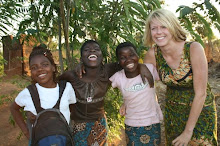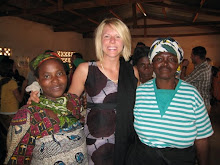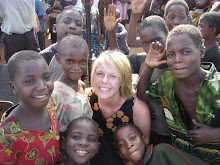Although it's pretty narrowed down at the moment- secondary schools(!)- the question always brings an array of thoughts to my mind- schools, vehicles, internship scholarships, etc...
Nevertheless, I love the question each time it arises. It indicates that someone is considering our kids, someone has taken notice and is willing to take action. Admittedly, often times the problems in Africa or other developing nations are so overwhelming that we become paralyzed. We can be such an all-0r-nothing culture. If I can't do it all, I will do nothing.
We hear the statistics and in hearing them the situations of the subjects (aka people) often become less real to us. It's like Monopoly money. I mean, who really has a stack of 500,000 bills? Just consider the facts below:
- Some 3,000 children die of malaria each day in Africa, one every 30 seconds. (National Geographic, July 2007)
- Malaria is the biggest killer of children under 5. (The Africa Malaria Report)
- Malaria costs Africa more than $12 billion annually. (The World Bank)
Honestly, is it possible to truly understand the above "hard facts," or perhaps more than understand- is it possible to truly feel the impact of such a harsh reality? Wen Kilama, a Tanzanian malaria researcher translated the above statements regarding malaria in this way: "If seven Boeing 747s full of children crashed into a mountain every day, would the world take measures to prevent it?"
Imagine you are walking on a shore full of starfish... :0 Not really.
It's simple, the greatest need for every child in Africa is that we take notice and that we live our lives in light of what we know-- there are great needs to be met and we have the opportunity to be a part of meeting them.








